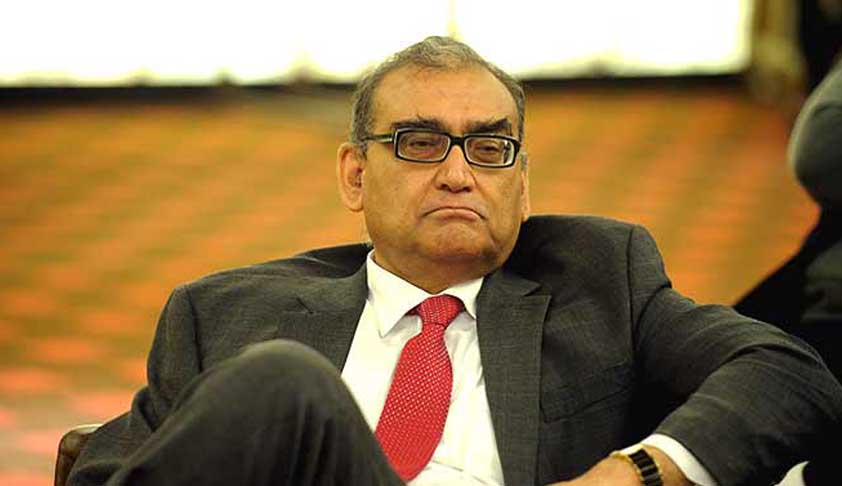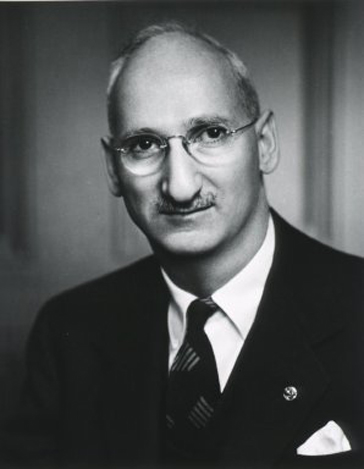VOLUME IV CHAPTER XIV
YOUR STRENGTH LIES IN LEVERAGING YOUR STAFF’S STRENGTHS

At the end of the year you have to make an appraisal of each staff member. Your performance review should not degenerate into a de-humanising exercise.
In his 1967 classic “The Effective Executive” Peter Drucker wrote “for integrity of his relationship with his subordinates”

Peter Drucker
Begin with one’s strength and make his/ her strength productive
Peter Drucker wants you to ask 3 questions:
- What has he/she done well
- What is he/she likely to do well in the future
- What new knowledge or skill must he/she acquire in order to get the full benefit from his/her strengths
Important question he wants you to ask yourself is:
If I had a son or daughter, would I be willing to have him/her work under or alongside this person? If yes why? If no, why not?
Be soft, be considerate, be compassionate, but make every job as “demanding and big” as possible. In 1952, when Edmund Hillary climbed to the top of Mount Everest, a reporter asked him “what made you climb it”. Hillary replied “because it is there – a challenge to human effort and endurance”.
If you find someone with strength, but not leveraging it to its fullest utility, then remove him ruthlessly because, Drucker advises you, “to let such a man stay on corrupts others. It is grossly unfair to the whole organisation.”
When you enter public service you must be prepared for criticism also along with compliments. The more you listen and the less you talk the better. We Principals should act like judges. Lord Kilmuir of UK Judiciary had a prescription for judges and put it succinctly thus:-
“So long as a judge keeps silent his reputation for wisdom and impartiality remains unassailable, but every utterance which he makes in public, except in the course of the performance of his official duties, but necessarily bring him within the focus of criticism.” As a former judge of the Supreme Court, Justice Markhandeya Katju said:-
“Judges do not speak for themselves except through their judgments.”
So, you should conduct yourself with “becoming reticence” since humility adds to your height.

Markhandeya Katju
Years back in the 50’s the author saw the film “ Rashomon” in which the Japanese Director Akira Kurosana narrates the story of a rape and murder four times from the perspectives of four different people implying than the same thing can be interpreted differently by different people. In our finest institutions also performance below par and any failure can be looked at from different angles and these impressions will have their effect on work and interpersonal relationships.
Observe how your staff responds to failure and assign blame. In a school, the +2 board examination results were very poor. When the author asked the PGT (Maths) he said “the teachers in the primary and secondary classes have not taught the basics properly. That is the reason”. The author asked the Principal to give that PGT one section in each class per week so that he can himself teach the basics and show to those teachers what he expects them to do. After 10 weeks (when he had finished teaching ten classes (1-10) the author visited that school and at random asked the pupils of different classes how they enjoyed his classes. Their reactions were:
- Our regular teachers know how to make us understand.
- He taught, but we have not learnt anything.
- He talks when we don’t understand. His English is not like that of our teacher.
- Out teachers will pat us on the back, will laugh with us. But, this teacher gets angry if we don’t answer correctly.
- Our teacher will use so many examples to make us learn, but this teacher uses only the black board.
- Our teacher will show us experiments and make us also to do them, but the teacher simply explained the experiments on the black board.
As a consequence, for the PRT summer course in the next may, the author put PGTs Maths, Physics, Chemistry and Biology as resource persons and a History Principal as the Director and asked them to make the PRT work out the basic concepts the students were expected to learn in each subject in each class. This exercise helped all the schools from which the participants came.
Psychological research has given us 3 types of staff:-
1) The Doubting Thomases
Appears to be very intelligent but highly sensitive to criticism and always pouring cold water on any idea.
2) The Grandiose type
Always thinks in terms of ‘Mega’ & ‘Maha’, commits mistakes often but supremely confident about himself. Declines to own mistakes.
3) The Industrious type
Very meticulous, hard working with an eye for detail, self imposed high standards, includes in micromanagement.
Psychologist Saul Rosenzweig has given us 3 types based on a test he had developed to evaluate anger and frustration:

Saul Rosenzweig
a) Extra-punitive
Always blames others
b) Impunitive
Doesn’t accept failure or denies his role in it
c) Intro-punitive
Highly self- critical. Imagines failures where it doesn’t exist. A sort of failure phobia
Perceive failure as a learning experience to train sportsmen. The author used to screen films of Olympics and ask the students to note down at which point the runners up committed a small lapse which had cost them the cup. So also, when he asked one set of players to play, he used to ask another set of players to note down the mistakes committed by those players. After the play, those notings will be discussed.
May be a person successful as a Teacher may fail as a Principal.
- Listen to your staff. Communicate with your staff.
- Reflect on both the situation and the people.
- Think before you act, look before you leap.
~~~~~
ONE WHO KNOWS (VOL 4 – CHAPTER XIV)
– Dimensions of the Life and Work of a Principal –

390) One who tells his staff that in their teaching there should be an element of unexpectedness and also an element of appropriateness.
391) One who tells his staff that the students come to teachers “FRAMING EXPECTATIONS” about them and it is their responsibility to rise up their expectations.
392) One who tells his students to:-
Be like a hawk, which is alert and swoops down, to catch a nugget of wisdom from the teacher’s mouth.
Have the industry of an ant.
Have the memory of a camel to connect the pieces of information.
Be like a peacock spreading its wings and enjoy art.
393) One who knows that the Principal and staff must be in complete sync practising “SYNCHRONISED SWIMMING”.
394) One who tells his staff that teaching is a journey of endless possibilities.
395) One who knows that being without the talent is different from not using the talent.
396) One who knows that when he stands before God at the end of his life he would not have a single bit of talent left and could say” I USED EVERYTHING YOU GAVE ME”.
397) One who knows that he needs to be merciful not to give sorrow and needs to be strong in order not to take sorrow and that the moment he stops taking sorrow, his days of joy has started.
398) One who asks his staff not to drown their students in information and starve them for wisdom.
399) One who knows (like flute T. R. Mali) to list all the 16 qualities a person should possess in a letter to a pupil and then abruptly end it stating: –
“You are the true human being, for all these qualities are encompassed in you!”
400) One who knows that loyalty can be shifted, but honesty cannot.
401) One who knows that a student grows when ideas start flowing from him.
402) One who knows how to make the past jealous of the future.
403) One who knows that if he rebukes a student and he sheds tears, his sorrow is visible and if he puts his head down and walks off, and then his heart would burn him (Principal).
404) One who knows that if he wants to raise himself to a greater height, then to that degree, he should prepare himself to face hardships and challenges.
405) One who knows the 12 traits which the Mother of Pondicherry advises everyone to have,
Peace Gratitude
Urge Values
Truthfulness Humility
Equanimity Magnanimity
Courage Perseverance
Listening Progressive
406) One who knows that freedom is the right to tell people what they don’t want to hear and that this applies equally to both himself and his staff.
407) One who knows that no matter how the world treats him, if he is caring, loving and kind in the way he treats the world, then his journey will be easy and smooth.
408) One who knows that though he can always do more, if he does too much, that may not get the best.
409) One who knows that relationships connect us to a part of ourselves we have long forgotten and remind us who we really are.
410) One who knows that the important thing is for him to work for himself and not for any approval and that if he feels that only doing well matters to him, then he becomes his most loyal fan and also his most severe critic.
411) One who knows that the difference between winners and losers is that winners do things that losers just don’t want to do.
412) One who knows to expand his ability to be useful which will bring him opportunities and that he must add “something” to every meeting.
413) One who knows that experience and wisdom are things which one just can’t Google.
414) One who knows that in his school visitor’s book if an alumnus coming after many years for a Reunion writes “whatever I am today, I am because of this school” , the person coming next should not write, “ why blame the school?”
415) One who makes others ask,
- Is your school brand cool?
- Is it something people aspire to?
- Is it something that inspires them?
- Is it a trend setter?
- Is it innovative?
- Is it offbeat and edgy?
- Is its standard high?
- Is it doing good to society?
- Is it a stamp of elitism?
- Is it authentic?
- Has a vision?
- Is it true to it?
- Delivers on its promises at every point.
416) One who is like the Frankinsense tree in Muscat.
417) One who sows love,
Who mixes in love,
Who merges in love.
418) One who personifies Abdul Kalam’s words: – “I may not be handsome but I can give a hand to someone who wants to make a mark in life”.
419) One who helps even a little, because he has been helped much.
420) One who is a multitasker because, like Napolean, has several rooms in his brains and opens only one at a time for doing a particular work and on its completion only will open the next room without mixing them and one who doesn’t waste his time which keeps him fresh always.
~~~~~
EMINENT THINKERS (VOL 4 – CHAPTER XIV)
(WHOSE IDEAS HAVE BEEN ADAPTED FOR EDUCATION MANAGEMENT)

Vanitha Narayanan, MD, IBM
- Pallavi Shroff ( Legal advisor)
- Roopa Kundra ( M. D – Crisil)
- Archana Hingorani ( CEO – IL & FS)
- Anupama Ahluwala ( V. P. Cocacola)
- Shanti Ekabarah – President ( kotak Mahindra bank)
- Sumita Mahajan ( Dy. Dean – ISB School )
- Vanitha Narayanan ( M. D. – IBM India)
- Mithun Chandila ( CEO – AirAsia)
- Arsene Wenger ( Manager – Arsenal team )
- Sir Alex Ferguson ( Manager – Manchester United team)
- Mike Carlson
- Edward p. Culligan
- Somerset Maugham ( writer)
- Vaishali Kasture ( M. D – Goldman Sachs – India)
- Madhumita Mukherjee
- Renu Sud Karnad ( M. D – HDFC Bank)
- Raul Salcido (General Manager, Ritz Carlton hotel – Dubai)
- Sumithra Comalam ( Sr. V. P. – Cognizant )
- Priya ( V. P. Hindustan Unilever)
~~~~~
All things in creation are subject to the law of change, and man, too, is subject to this law. – Sri Sathya Sai Baba
(Place your comment/view about the article.)




